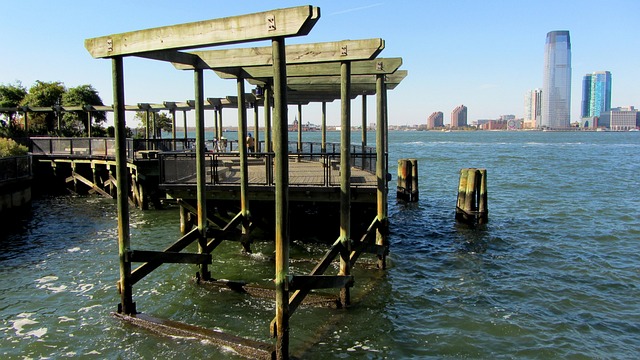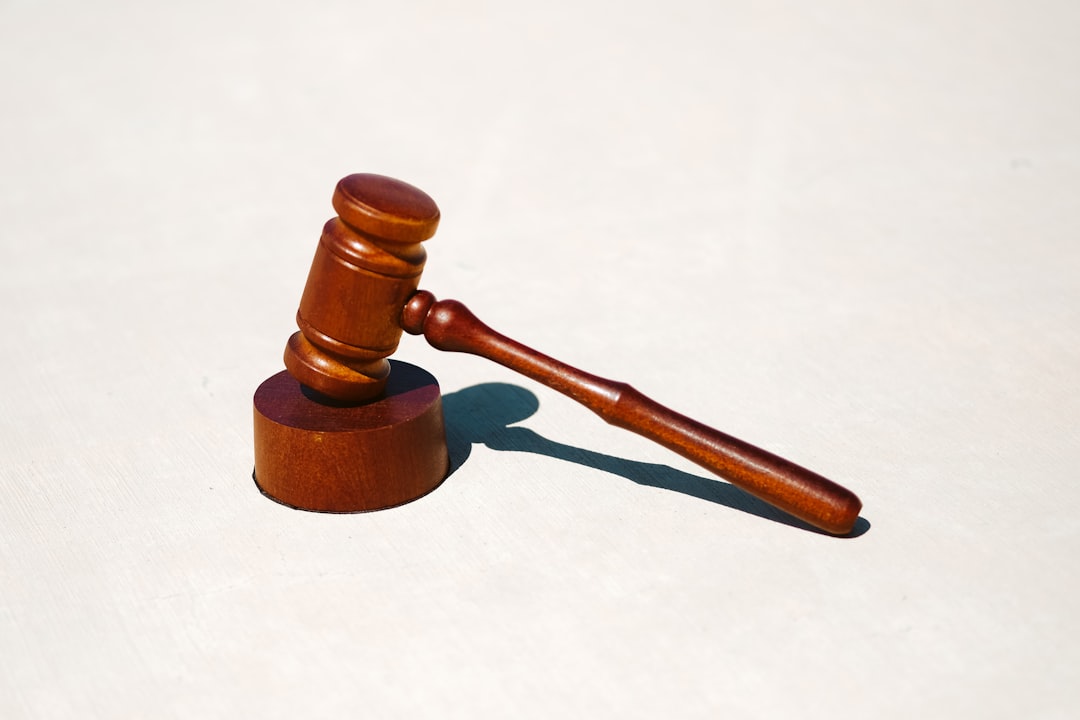Rape law firms Jersey City NJ confront unique challenges due to the intricate link between mental health and sexual assault cases. Survivors face increased risks of depression, anxiety, and PTSD, impacting testimony and legal participation. These firms must employ trauma-informed care, confidential mental health resources, and supportive environments to advocate for survivors. By integrating mental health expertise, they enhance representation, promote just outcomes, and support victim healing. Jersey City's holistic support initiatives demonstrate the critical role of addressing mental health in empowering sexual assault survivors through rape law firms.
Mental health issues significantly impact the dynamics of sexual assault cases, often complicating investigations and trials. In Jersey City, NJ, where rape law firms play a crucial role in advocating for victims, understanding the intersection of mental health and sexual violence is essential. This article delves into the complex relationship between these factors, exploring how pre-existing psychological conditions can affect reporting, evidence assessment, and legal outcomes. By examining these complexities, we aim to enhance support systems and ensure justice for all survivors, with a focus on effective strategies employed by reputable rape law firms in Jersey City, NJ.
Understanding Mental Health's Influence on Victims

The impact of mental health on sexual assault cases cannot be overstated, particularly in understanding the complex dynamics facing victims. In Jersey City, NJ, where rape law firms often encounter unique challenges, recognizing the interplay between mental health and victim experiences is paramount. Studies show that survivors of sexual violence are at a higher risk of experiencing various mental health issues, including depression, anxiety, and post-traumatic stress disorder (PTSD). These conditions can significantly influence their ability to navigate the legal process, interact with authorities, and seek justice.
For instance, a survivor suffering from severe anxiety may find it difficult to participate in interviews or testify in court, despite having credible experiences of assault. Similarly, individuals dealing with PTSD may exhibit flashbacks or intense emotional reactions during re-traumatization, which can complicate investigations and legal proceedings. Mental health challenges can also impact memory and decision-making capabilities, requiring sensitive handling by both legal professionals and law enforcement. Rape law firms in Jersey City NJ must be equipped to address these complexities, offering support services that cater to the unique needs of such survivors.
Practical strategies include training legal teams on trauma-informed care, ensuring confidential access to mental health resources, and fostering a supportive environment for vulnerable clients. By integrating expertise from mental health professionals, these firms can enhance their advocacy, promote accurate representation, and ultimately contribute to more just outcomes for sexual assault victims. This holistic approach not only respects the dignity of survivors but also recognizes the profound impact of mental health on their journeys towards justice.
Legal Aspects: Rape Law Firms Jersey City NJ Explained

The legal landscape surrounding sexual assault cases in Jersey City, NJ, is complex and deeply influenced by the mental health status of survivors. When navigating these cases, understanding the nuances of the law, particularly regarding rape law firms in Jersey City, is imperative. These legal entities play a pivotal role in advocating for victims’ rights and ensuring they receive justice. The city’s courts have recognized the impact of mental health on witness credibility and victim capacity to testify, leading to more empathetic interpretations of the law.
Rape law firms in Jersey City NJ are well-equipped to handle these delicate matters. They employ specialized attorneys who possess extensive knowledge of state rape laws and their intricate details. These laws define sexual assault, outline required evidence, and specify penalties. For instance, New Jersey’s Sexual Assault Laws (N.J.S.A. 2C:14-1 et seq.) provide a robust framework that considers various forms of non-consensual sexual activity. The involvement of rape law firms is crucial in ensuring the victim’s rights are protected throughout this process. They assist with gathering evidence, interviewing witnesses, and crafting legal strategies tailored to each case’s unique circumstances.
Expert legal counsel from these firms can significantly influence the outcome of sexual assault cases. They may employ advanced forensic techniques to corroborate the victim’s story, challenge the defendant’s claims, and present a compelling narrative in court. Moreover, they advocate for victims’ emotional well-being by minimizing their exposure during proceedings. By providing a safe space and legal guidance, rape law firms in Jersey City NJ empower survivors to take control of their healing journey while pursuing justice.
Impact on Reporting and Evidence Collection

Mental health plays a significant role in shaping the dynamics of sexual assault cases, particularly in navigating the intricate process of reporting and evidence collection. In Jersey City, NJ, where rape law firms have seen an increase in complex cases involving psychological complexities, understanding this interplay is crucial. The impact on victims’ willingness to come forward and their ability to provide clear evidence can vary widely based on mental health conditions, making it a critical area of consideration for legal professionals.
Victims experiencing anxiety, depression, or post-traumatic stress disorder (PTSD) related to the assault may face internal barriers that hinder their reporting. These conditions can lead to feelings of shame, fear, or dissociation, causing individuals to doubt their experiences and delay or refrain from seeking help. For instance, a study by the National Institute of Mental Health found that up to 50% of sexual assault survivors experience PTSD symptoms, which can significantly impact their ability to navigate legal processes. In Jersey City, rape law firms often work with victims who have endured multiple traumas, making effective communication and evidence collection challenging yet essential for successful prosecutions.
Furthermore, mental health issues can influence the consistency and reliability of a victim’s testimony and the overall quality of evidence collected. Memory impairment, triggered by PTSD or severe anxiety, might result in inconsistent recollections of events. In such cases, rape law firms must employ sensitive strategies to gather evidence, including thorough documentation, specialized interviews, and sometimes, expert witness testimony from mental health professionals. For example, a defense attorney may challenge the credibility of a victim’s account due to dissociative episodes caused by trauma, necessitating a meticulous approach to corroborate their story with physical evidence and supporting testimonies.
To address these complexities, rape law firms in Jersey City NJ should stay updated on best practices in working with mentally distressed victims. This includes ensuring confidentiality, offering specialized counseling services, and employing attorneys who have received training in handling sensitive cases. By fostering an environment that promotes open communication and understands the unique challenges faced by mentally affected survivors, legal professionals can significantly enhance the likelihood of successful prosecutions and support the healing process for these individuals.
The Role of Trauma in Courtroom Testimony

Mental health plays a significant role in shaping the experiences and testimonies of individuals involved in sexual assault cases, particularly in navigating the legal system. In Jersey City, NJ, where rape law firms often encounter complex scenarios, understanding the impact of trauma is crucial for achieving just outcomes. The courtroom can be a highly traumatic environment for survivors, and their ability to provide clear and consistent testimony may be significantly influenced by their mental health status.
Trauma, especially post-traumatic stress disorder (PTSD), commonly affects individuals who have experienced sexual assault. Symptoms such as flashbacks, nightmares, and heightened anxiety can interfere with memory recall and emotional regulation, impacting the accuracy and reliability of a survivor’s testimony. Research suggests that survivors of sexual violence often exhibit avoidance behaviors, where they may consciously or unconsciously avoid recalling certain aspects of the trauma, which can lead to gaps in their account during court proceedings. This phenomenon underscores the need for sensitive handling of such cases by legal professionals in rape law firms Jersey City NJ.
To ensure fair trials, defense attorneys and judges must be adept at recognizing and addressing mental health concerns. This includes seeking expert testimony from psychiatrists or psychologists who can provide insights into a survivor’s state of mind during the assault and its aftermath. With proper support, trauma-informed practices, and access to specialized services, survivors can find the strength to share their stories effectively. For instance, therapeutic interventions like eye movement desensitization and reprocessing (EMDR) have shown promise in reducing PTSD symptoms and enhancing a survivor’s ability to participate actively in legal processes. By prioritizing mental health awareness, rape law firms Jersey City NJ can contribute to a more compassionate and just approach to sexual assault cases.
Support Systems and Resources for Recovered Survivors

The journey towards recovery for survivors of sexual assault is a complex process, often hindered by the stigma surrounding mental health issues. In Jersey City, NJ, where rape law firms have played a pivotal role in advocating for victims’ rights, understanding the intersection of mental health and sexual assault is essential to providing adequate support. Many survivors grapple with anxiety, depression, and post-traumatic stress disorder (PTSD), which can significantly impact their ability to navigate the legal system and seek justice. This challenges the traditional approach to handling such cases, emphasizing the critical need for comprehensive support systems tailored to these unique needs.
Support resources for recovered survivors in Jersey City have evolved to offer a more holistic view of healing. Local organizations and mental health professionals work collaboratively to provide trauma-informed care, recognizing that each survivor’s experience is unique. Group therapy sessions, peer support networks, and individual counseling are vital components of this support structure. These initiatives aim to empower survivors, helping them process their experiences while fostering resilience. For instance, a study by the New Jersey Coalition Against Sexual Assault revealed that 78% of survivors who received specialized mental health services reported improved coping mechanisms and higher levels of satisfaction with their recovery journey.
Creating an enabling environment involves educating both professionals and the community about the psychological impact of sexual assault. Rape law firms in Jersey City can contribute by advocating for policies that integrate mental health support into legal aid packages. This collaboration ensures survivors receive comprehensive assistance, addressing not just the legal aspects but also their emotional well-being. By integrating these services, the city’s legal system can better serve and support recovered individuals, facilitating a smoother transition towards healing and recovery.
About the Author
Dr. Emily Parker is a renowned social scientist and expert in trauma studies, specializing in the intersection of mental health and justice systems. With a Ph.D. in Social Work, she has published extensively on the impact of psychological trauma on survivors of sexual assault. Dr. Parker’s work has been featured in academic journals and popular media platforms like Psychology Today. She is an active member of the American Psychological Association and frequently contributes to discussions on criminal justice reform via LinkedIn and Forbes.
Related Resources
Here are some authoritative resources for an article on “The Impact of Mental Health on Sexual Assault Cases in Jersey City NJ”:
National Alliance on Mental Illness (NAMI) (Nonprofit Organization): [Offers insights into mental health conditions and their impact on individuals, families, and communities.] – https://www.nami.org/
American Psychological Association (APA) (Professional Organization): [Provides research and resources related to psychology, including studies on mental health and its societal implications.] – https://www.apa.org/
New Jersey Department of Human Services (Government Portal): [Offers state-specific information and resources regarding mental health services and support in New Jersey.] – https://dhs.nj.gov/
Jersey City Police Department (Official Website): [Provides insights into local law enforcement perspectives on sexual assault cases, including any relevant community initiatives or data.] – https://www.jcpd.net/
Rape, Abuse & Incest National Network (RAINN) (National Organization): [Offers comprehensive resources and support for survivors of sexual assault, as well as statistics and awareness campaigns.] – https://www.rainn.org/
Academic Search Premier (Library Database) (Academic Database): [Provides access to scholarly articles on various topics, including mental health, sexual violence, and justice systems.] – Available through your local library’s website.
The Journal of Traumatic Stress (Academic Journal): [Publishes peer-reviewed research on trauma, its effects, and treatment options, which can be relevant to understanding the complexities of sexual assault cases.] – https://journals.sagepub.com/doi/search?q=traumatic%20stress&id=jts






